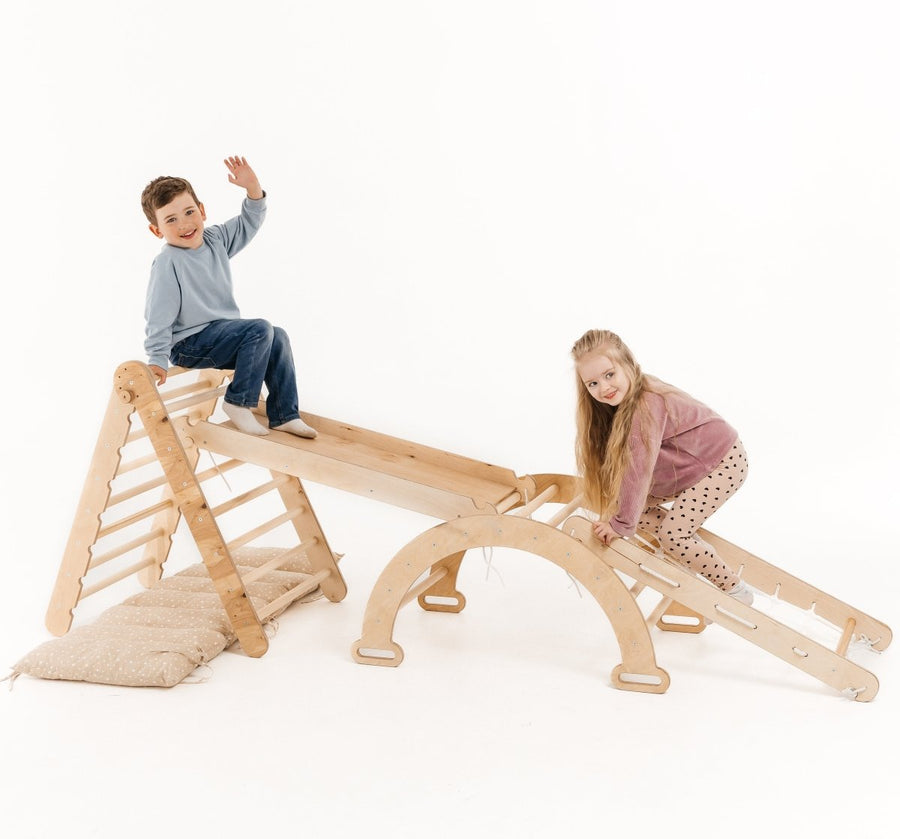
How to Support Your Child’s Language Growth
Speech development in toddlers is a key milestone of early childhood. Understanding how children learn to talk, what speech delays may mean, and how parents can support language growth helps ensure healthy communication skills from the start.
Toddler Speech Development: What to Expect and When to Worry
Toddler speech development is one of the most exciting and sometimes concerning aspects of early childhood. Between ages 1-3, your little one transforms from babbling baby to chattering child, but this journey doesn't happen overnight. Understanding normal speech patterns, recognizing potential delays, and knowing how to support your toddler's communication skills can help ensure they reach important language milestones.
In This Article
Normal Speech Development Milestones for Toddlers
-
By 12-15 months
Most toddlers say their first words like "mama," "dada," or "hi." They typically understand simple commands and use gestures to communicate their needs.
-
Around 18 months
Vocabulary expands to 10-20 words, though pronunciation may still be unclear. Toddlers begin combining words with gestures and show increased interest in naming objects. This period often includes a "vocabulary explosion" where new words appear rapidly.
-
By age 2
Most toddlers use 50-100 words and start forming two-word phrases like "more milk" or "bye-bye car." They can follow two-step instructions and their speech becomes more understandable to familiar caregivers, though strangers may still struggle to comprehend them.
-
Between 2-3 years
Sentence length increases to 3-4 words, vocabulary reaches 200-1000 words, and strangers can understand about half of what they say. Toddlers begin using pronouns, asking simple questions, and engaging in back-and-forth conversations.
Common Speech Challenges and Variations
Many toddlers experience temporary speech difficulties that resolve naturally with time and practice. Stuttering occasionally appears between ages 2-5 as language skills rapidly develop, often disappearing without intervention. Articulation issues are also common—sounds like "r," "l," and "th" typically don't develop until ages 4-6.
Some toddlers are naturally late talkers who understand everything but speak less than peers. These children often catch up by age 3 without special intervention. However, persistent delays or regression in previously acquired skills warrant professional evaluation.
Pronunciation variations are normal during toddlerhood. Substituting easier sounds (saying "wabbit" for "rabbit") or simplifying words demonstrates developing phonological awareness rather than true speech problems.

Supporting Your Toddler's Speech Development
Parents play a crucial role in fostering healthy speech development through daily interactions and environmental enrichment. Reading together daily exposes toddlers to new vocabulary, sentence structures, and storytelling patterns that enhance language comprehension and expression.
Narrating daily activities helps toddlers connect words with actions and objects. Describe what you're doing during meals, bath time, or errands: "Now we're washing your hands with warm, soapy water."
Responsive communication encourages further speech attempts. When your toddler says "juice," expand their utterance: "You want apple juice? Here's your cold apple juice in the blue cup." This technique, called parallel talk, models proper grammar and vocabulary while acknowledging their communication.
Key strategies include:
- Limiting screen time to encourage face-to-face interaction
- Singing songs and reciting nursery rhymes to develop rhythm and phonological awareness
- Playing simple games like peek-a-boo or pat-a-cake that involves turn-taking
- Giving your toddler time to respond rather than rushing to fulfill requests
- Using clear, slow speech at your toddler's eye level
When to Seek Professional Help
While speech development varies widely, certain warning signs indicate the need for professional evaluation. Contact a speech-language pathologist if your toddler shows limited interest in communicating, doesn't attempt to imitate sounds or words by 15 months, or loses previously acquired speech skills.
Red flags by age include:
- 12 months: No babbling, gesturing, or attempts to communicate
- 18 months: Fewer than 6 words or no interest in imitating sounds
- 24 months: Fewer than 25 words, no two-word combinations, or difficulty following simple commands
- 36 months: Fewer than 200 words, no three-word sentences, or speech that's largely unintelligible
The Role of Multilingual Environments
Toddlers growing up in bilingual or multilingual households may show different speech patterns than monolingual peers. Code-switching (mixing languages within sentences) is normal and demonstrates sophisticated language awareness rather than confusion.
These children might have smaller vocabularies in each individual language but possess similar total word knowledge when both languages are combined. Temporary delays in one language often resolve as exposure and practice increase.
Supporting multilingual development requires consistent exposure to each language through designated speakers, activities, or timeframes. Professional evaluation should consider the child's total communication abilities across all languages.
Conclusion
Toddler speech development is a remarkable journey filled with individual variations and exciting milestones. While every child progresses at their own pace, understanding typical patterns helps parents provide appropriate support and recognize when professional guidance might be beneficial. Remember that consistent, loving interaction is the most powerful tool for nurturing your toddler's communication skills.
Frequently Asked Questions
How many words should a 2-year-old know?
Most 2-year-olds use 50-100 words and can combine two words together like "more crackers" or "daddy gone." However, there's significant variation, and some children may know fewer words while still developing normally.
Is it normal for toddlers to stutter?
Yes, temporary stuttering is common between ages 2-5 as toddlers' thoughts move faster than their ability to speak. Most developmental stuttering resolves naturally without intervention, but persistent stuttering lasting more than 6 months should be evaluated.
When should I worry about my toddler's pronunciation?
Perfect pronunciation isn't expected until age 7-8. Focus on whether your toddler is attempting new words and whether familiar listeners can understand them. Speech should become clearer over time rather than remaining static or declining.
Can too much screen time affect speech development?
Excessive screen time can impact speech development by reducing face-to-face interactions crucial for learning communication skills. The American Academy of Pediatrics recommends limiting screen time and prioritizing interactive play and conversation.
How can I encourage my quiet toddler to talk more?
Create opportunities for communication by pausing during activities, asking simple questions, reading together, and responding enthusiastically to attempts at speech. Avoid pressuring or correcting, instead model correct pronunciation and expand on their words.





